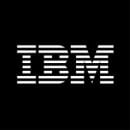Blockchain applications go far beyond cryptocurrency and Bitcoin. With its ability to create more transparency and fairness while also saving businesses time and money, the technology is impacting a variety of sectors in ways that range from how contracts are enforced to making government work more efficiently.
We’ve rounded up some examples of real-world blockchain use cases for this pragmatic yet revolutionary technology. It’s far from an exhaustive list, but they’re already changing how we do business.
Top Blockchain Applications To Know
- Money transfer
- Smart contracts
- Internet of Things (IoT)
- Personal identity security
- Healthcare
- Logistics
- Non-fungible tokens (NFTs)
- Government
- Media
Blockchain in Money Transfer
Pioneered by Bitcoin, cryptocurrency transfer apps have exploded in popularity in the 2020s. Blockchain is especially popular in finance for the money and time it can save financial companies of all sizes.
By eliminating bureaucratic red tape, making ledger systems real-time and reducing third-party fees, blockchain can save the largest banks lots of money. These companies use blockchain to efficiently transfer money.
Block offers financial services and digital payment processing solutions that allow small businesses and their customers to process credit card payments point-of-sale on tablets. It developed Bitkey, which works with companies like Cash App and Coinbase to work as a modern finance app to provide security and accessibility. The company’s customers can access Bitkey through their hardware device, phone and a private key held on the Bitkey server.
Location: New York, New York
Onyx is JPMorgan Chase’s blockchain initiative, which develops products and solutions that leverage distributed ledger technology to support financial institutions and fintech companies. In 2023, JPMorgan Chase launched a pilot program in partnership with six banks in India to use Onyx’s technology for real-time settlement of interbank U.S. dollar transactions.
Location: San Francisco, California
Cash App’s fintech platform is a well-known peer-to-peer payment service but the company has also invested significantly in the world of bitcoin transactions and blockchain technology. Users can buy and sell bitcoin on Cash App using the Lightning Network.
Location: New York, New York
Chainalysis helps financial institutions and governments monitor the exchange of cryptocurrencies and investigate blockchain activity. The company’s tools aim to detect fraudulent trading, laundering and compliance violations as well as gauge NFT security risk, all to build trust in blockchain.
Location: Boston, Massachusetts
Circle’s fintech platform oversees the exchange of traditional and cryptocurrency payments between users, as well as provides tools for businesses to build themselves on blockchain. The company’s merchant payment services utilize stablecoin technology to move money between digital currencies securely and quickly. Circle accepts crypto payments in currencies like Bitcoin, Etherium, USD Coin and Euro Coin.
Blockchain Smart Contracts
Smart contracts are like regular contracts except the rules of the contract are enforced in real-time on a blockchain, which eliminates the middleman and adds levels of accountability for all parties involved in a way not possible with traditional agreements. This saves businesses time and money, while also ensuring compliance from everyone involved.
Blockchain-based contracts are becoming more and more popular as sectors like government, healthcare and the real estate industry discover the benefits. Below are a few examples of how companies are using blockchain to make contracts smarter.
Location: San Francisco, California
With DFINITY’s Internet Computer, an open-source blockchain network, users can build decentralized applications and Web3 services directly on-chain. The Internet Computer offers scalable smart contracts and low-latency consensus, which supports Bitcoin network integration, decentralized social media apps plus NFT storage and community resources.
Location: Mountain View, California
Google provides solutions for Web3 businesses and ecosystems such as its Blockchain Node Engine, which can streamline smart contracts and reduce blockchain DevOps needs. Blockchain Node Engine allows users to fully manage blockchain nodes, quickly relay transactions and deploy smart contracts under support of the Google Cloud network.
Blockchain and IoT
The Internet of Things (IoT) is the next logical boom in blockchain applications. IoT has millions of applications and many safety concerns, and an increase in IoT products means better chances for hackers to steal your data on everything from an Amazon Alexa to a smart thermostat.
Blockchain-infused IoT adds a higher level of security to prevent data breaches by utilizing transparency and virtual incorruptibility of the technology to keep things “smart.” Below are a few companies using blockchain to make the Internet of Things safer and smarter.
Location: Palo Alto, California
Xage is the world’s first blockchain-enabled cybersecurity platform for IoT companies. The technology manages multiple devices at once with multi-factor authentication plus self-healing services in the case of breaches. Xage is primarily used by IoT companies in the transportation, energy and manufacturing industries, like Microsoft, Dell and the U.S. Air Force.
Location: San Francisco, California
Housed on blockchain, Helium’s People’s Network is the world’s largest LoRaWAN network, or contiguous wireless network which connects and transfers information between IoT devices. The network is able to track and report on real-time asset data, powering monitoring and management efforts for smart agriculture, smart cities, smart water and logistics. Hotspot devices compatible with the People’s Network can even be used to mine HNT cryptocurrency.
Blockchain Security
According to AARP, Americans lost up to $8.8 billion due to investment scams and fraud in 2022. Fraud on this scale can occur via everything from forged documents to hacking into personal files.
By keeping social security numbers, birth certificates, birth dates and other sensitive information on a decentralized blockchain ledger, the government could see a drastic drop in identity theft claims. Here are a few blockchain-based enterprises at the forefront of identity security.
Location: New York, New York
CertiK’s platform was founded by professors from Yale and Columbia, and aims to make Web3 and the blockchain less susceptible to hacks. It does so by reviewing source code for smart contracts to find vulnerabilities and recommend fixes. CertiK's Skynet platform also actively monitors projects for code updates, wallet behavior and other risk signals.
Location: Armonk, New York
IBM is known for its immutable ledger used by businesses to keep a tamper-proof record of transactions and data. However, the company’s blockchain work goes further through its Hyperledger Fabric, a service that combines traditional cybersecurity with blockchain-specific controls to protect sensitive data, which is used by enterprise organizations to build blockchain applications.
Blockchain in Healthcare
Blockchain in healthcare solutions have shown the potential to reduce healthcare costs, improve access to information across stakeholders and streamline business processes. An advanced system for collecting and sharing private information could be just what the doctor ordered to make sure that an already bloated sector can trim down exorbitant costs.
Location: Englewood, Colorado
Through its LifeGraph platform, BurstIQ delivers data solutions for healthcare and life science organizations. The platform combines blockchain and artificial intelligence to securely integrate and manage sensitive data and ensure HIPAA compliance. Beyond data security, LifeGraph can also help unlock data insights, according to the company.
Location: San Francisco, California
Nebula Genomics enables individuals to control and monetize their genomic data using blockchain technology. The platform provides a marketplace where users can grant access to researchers to access their health information while retaining ownership. The platform uses anonymous sequencing and encrypted storage to keep everything secure.
Blockchain Logistics
A major complaint in the shipping industry is the lack of communication and transparency due to the large number of logistics companies crowding the space. According to a joint study by Accenture and logistics giant DHL, there are more than 500,000 shipping companies in the U.S., causing data siloing and transparency issues. The report goes on to say blockchain can solve many of the problems plaguing logistics and supply chain management.
The study argues that blockchain enables data transparency by revealing a single source of truth. By acknowledging data sources, blockchain can build greater trust within the industry. The technology can also make the logistics process leaner and more automated, potentially saving the industry billions of dollars a year. Blockchain is not only safe, but a cost-effective solution for the logistics industry. Here are some companies on the cutting-edge of logistics blockchain technology.
Oracle’s Intelligent Track and Trace application for supply chain management is powered completely by blockchain. The software enables multi-tier visibility across supply chain systems, letting users detect issues in food processes, monitor product temperatures and track shipped equipment.
Location: San Francisco, California
Chain builds cloud-native blockchain infrastructures and integration solutions for supply chain and logistics management. The company’s solutions include milestone automation, shipping automation, freight operations and more service integrations to scale supply chain businesses regardless of existing architecture.
Location: Plantation, Florida
Shipping giant DHL is at the forefront of blockchain-backed logistics, using it to keep a digital ledger of shipments and maintain integrity of transactions. DHL has a major presence in the U.S. and is one of the largest shipping companies to embrace blockchain.
Blockchain and NFTs
Non-fungible tokens (NFTs) have been the hottest blockchain application since cryptocurrency. These digital items, like music, art, GIFs and videos, are sold on a blockchain, ensuring that a sole owner can claim full rights to it. Thanks to blockchain technology, consumers can now claim sole ownership over some of the most desirable digital assets out there.
Below are a few examples of companies taking advantage of the NFT wave.
Location: Fully Remote
Dapper Labs is one of the first companies to explode thanks to the NFT craze. It partnered with the NBA to bring about “NBA Top Shot,” an NFT marketplace where buyers can become owners of digital media from their favorite NBA players or teams. Users have the opportunity to own collectible moments that range from a LeBron James highlight reel dunk to an Anthony Davis blocked shot GIF.
Location: New York, New York
OpenSea hosts one of the largest NFT marketplaces in the world, where users can buy, sell and create amongst millions of NFTs. Visitors may browse NFT art, gaming or photography pieces and view real-time price offers and trending NFT collections. OpenSea is backed by companies like Coinbase and Trust Wallet, and sits at a trading volume of over $20 billion.
Blockchain in Government
One of the most surprising applications for blockchain can be in the form of improving government. As mentioned previously, some state governments like Illinois are already using the technology to secure government documents, but blockchain can also improve bureaucratic efficiency, accountability and reduce massive financial burdens. Blockchain has the potential to cut through millions of hours of red tape every year, hold public officials accountable through smart contracts and provide transparency by recording a public record of all activity, according to the New York Times.
Blockchain may also revolutionize our elections. Blockchain-based voting could improve civic engagement by providing a level of security and incorruptibility that allows voting to be done on mobile devices.
The following companies and government entities are a few examples of how blockchain applications are improving government.
Location: Raleigh, North Carolina
Kaleido boasts blockchain-based solutions for running and deploying ledgers across several industries, one being government. The company’s services can be utilized for risk reduction and auditing, overall streamlining operations in the sectors of public health, education, customs and payment. Kaleido’s solutions have been used by organizations like the United Nations, Centers for Disease Control and Prevention and the World Wide Fund for Nature.
Location: Blacksburg, Virginia
Follow My Vote is a secure online voting platform using an open-source virtual blockchain ballot box. The technology decreases spending on physical ballots and can be accessed via any device. Follow My Vote implements the end-to-end tools that elections need in order to provide total safety and confidence in the voting process.
Location: Boston, Massachusetts
Voatz is a mobile voting platform that runs on blockchain. The encrypted biometric security system makes it secure to vote on a mobile device from anywhere in the world without fear of hacking or data corruption. West Virginia is one of the first states to use Voatz to collect votes from eligible service people and travelers abroad during elections.
Blockchain in Media
Many of the current problems in media deal with data privacy, royalty payments and piracy of intellectual property. According to a study by Deloitte, the digitization of media has caused widespread sharing of content that infringes on copyrights. Deloitte believes blockchain can give the industry a much needed facelift when it comes to data rights, piracy and payments.
Blockchain’s strength in the media industry is its ability to prevent a digital asset, such as an mp3 file, from existing in multiple places. It can be shared and distributed while also preserving ownership, making piracy virtually impossible through a transparent ledger system. Additionally, blockchain can maintain data integrity, allowing advertising agencies to target the right customers, and musicians to receive proper royalties for original works. The following companies are helping grow the popularity of blockchain in our media.
Location: San Francisco
Kodak is known for its digital cameras and analog film, but in recent years, the company also started working with blockchain technology. Through its KODAKOne platform, users can register and license their work on a blockchain ledger. This provides them with immutable proof of ownership over their work and enables them to monetize it as well.
Location: Covina, California
Pixsy is a software company that develops copyright and legal tools for creatives. After acquiring Binded in 2019, the company implemented a blockchain-based copyright registration platform. Through the platform, it allows creators to register their work on a blockchain ledger to establish proof of authorship and timestamping.
Frequently Asked Questions
What industries are currently using blockchain technology?
Blockchain is being adopted across multiple sectors, including finance, healthcare, logistics, government and media.
How does blockchain improve money transfers?
Blockchain simplifies and accelerates financial transactions by removing any intermediary parties and automating record-keeping. This reduces fees, eliminates bureaucratic red tape and allows banks and fintech companies to process transfers securely in real time.
What are smart contracts and how do they work?
Smart contracts are self-executing agreements coded on a blockchain. They automatically enforce terms once conditions are met, removing the need for intermediaries. This saves time and money while ensuring compliance and accountability across industries like healthcare, real estate and government.
How does blockchain enhance security and identity protection?
Blockchain stores sensitive information such as social security numbers and other personal data on decentralized ledgers that are nearly impossible to tamper with. This makes it harder for hackers to steal identities or falsify records and allows organizations to track suspicious activity in real time.





















